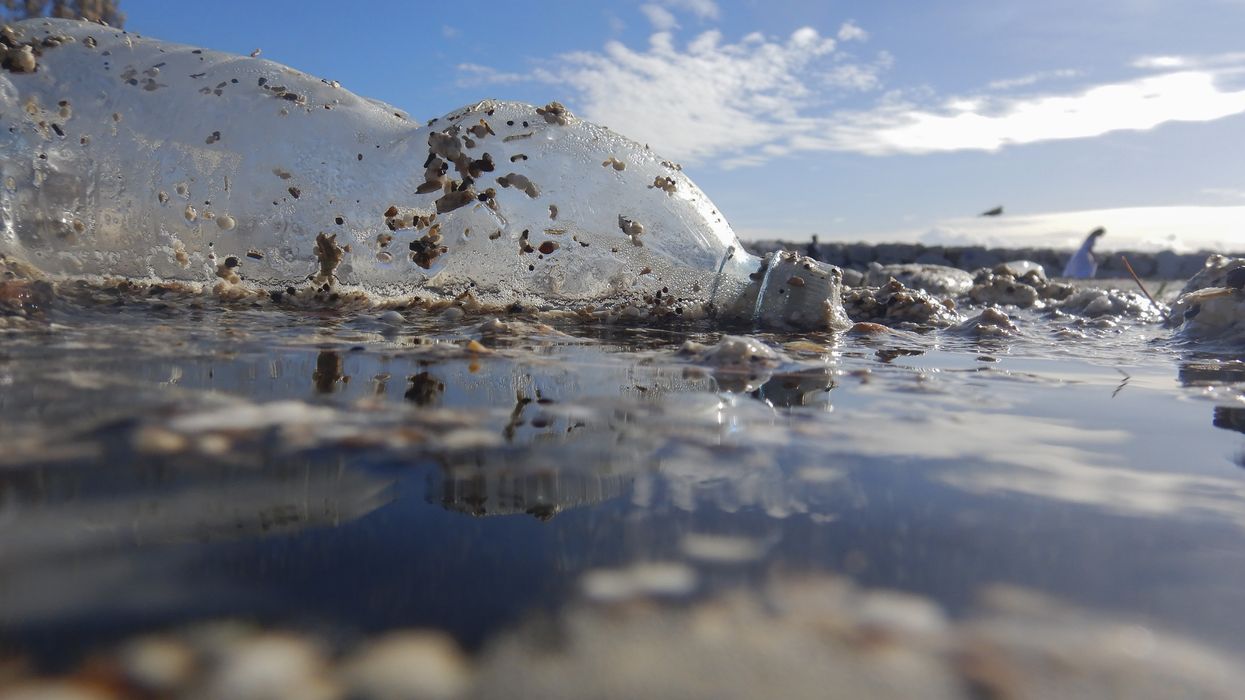For the peer-reviewed study, published Wednesday in the journal
PLOS ONE, researchers based in the United States, Sweden, Chile, and Australia examined previously published and new data on floating plastic pollution between 1979-2019 from 11,777 stations across the North Atlantic, South Atlantic, North Pacific, South Pacific, Indian, and Mediterranean regions.
"Without substantial widespread policy changes, the rate at which plastics enter aquatic environments will increase approximately 2.6-fold from 2016 to 2040."
"The situation is much worse than expected,"
explained co-author Patricia Villarrubia-Gómez, a researcher at the Stockholm Resilience Center in Sweden. "In 2014, it was estimated that there were 5 trillion plastic particles in the ocean. Now, less than 10 years later, we're up at 170 trillion."
Specifically, they estimate the world's oceans contain a "growing plastic smog" of approximately 82-358 trillion particles, or an average of 171 trillion particles that are primarily microplastics. As
The Washington Postnoted, that "is more than 21,000 pieces of plastic for each of the Earth's 8 billion residents."
The study states that "we observed no clear detectable trend until 1990, a fluctuating but stagnant trend from then until 2005, and a rapid increase until the present. This observed acceleration of plastic densities in the world's oceans, also reported for beaches around the globe, demands urgent international policy interventions."
"Without substantial widespread policy changes," the study warns, "the rate at which plastics enter aquatic environments will increase approximately 2.6-fold from 2016 to 2040."
Eriksen argued that given the current conditions, humanity must "stop focusing on cleanup and recycling, and usher in an age of corporate responsibility for the entire life of the things they make."
"Cleanup is futile if we continue to produce plastic at the current rate, and we have heard about recycling for too long while the plastic industry simultaneously rejects any commitments to buy recycled material or design for recyclability," the scientist said.
The research comes amid efforts to create a United Nations treaty on plastic pollution by next year. After 175 nations
agreed to craft such a pact during a March 2022 meeting in Kenya, Uruguay hosted the first round of negotiations late last year. A second session of talks in France is scheduled for May.
According to Eriksen, "We need a strong, legally binding U.N. global treaty on plastic pollution that stops the problem at the source."
In comments to
The Guardian, study co-author Edward J. Carpenter, of the Estuary & Ocean Science Center at San Francisco State University, also called for governments across the globe to ambitiously tackle the crisis.
"We know the ocean is a vital ecosystem and we have solutions to prevent plastic pollution. But plastic pollution continues to grow and has a toxic effect on
marine life," he said. "There must be legislation to limit the production and sale of single-use plastics or marine life will be further degraded. Humans need healthy oceans for a livable planet."
Judith Enck, a former U.S. Environmental Protection Agency regional administrator who is now president of the organzation Beyond Plastics, echoed the study authors' demand for dramatically cutting down on production.
"The plastics and petrochemical industries are making it impossible to curb the amount of plastic contaminating our oceans," she
said in an email to CNN. "New research is always helpful, but we don't need to wait for new research to take action—the problem is already painfully clear, in the plastic accumulating in our oceans, air, soil, food, and bodies."
As Richard Thompson, a professor at the U.K.'s Plymouth University who was not involved in the study,
told BBC News: "We are all agreed there is too much plastic in the ocean. We urgently need to move to solutions-focused research."



